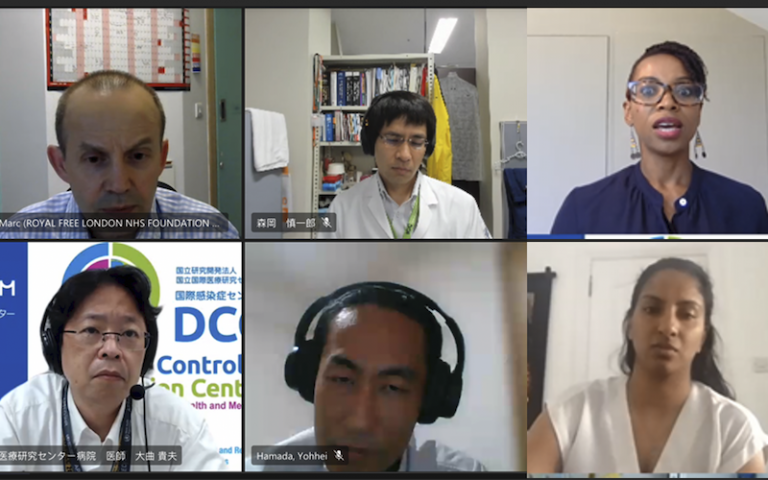UCL and Tohoku University joint consortium on long COVID
A collaboration between researchers at UCL and Tohoku University is investigating the unknowns surrounding long COVID

21 July 2021
The novel Coronavirus disease (COVID-19) has affected more than 150 million people worldwide and it has become clear that some people suffer from various persistent symptoms after the infection has passed, known as long COVID.
To address some of the unknowns about long COVID such as the burden, risk factors, biological mechanisms and possible treatment options, researchers at UCL and Tohoku University are working with the National Center for Global Health and Medicine (NCGM), Royal Free NHS Trust and London North West NHS Trust.
Supported by the UCL-Tohoku Strategic Partner Funds, the aim of the project is to develop a standardised protocol for a UK-Japan cohort study of long COVID.
The joint consortium is led by Dr Lele Rangaka, Clinical Associate Professor in the UCL Institute for Global Health, and Professor Norio Ohmagari of Tohoku University and NCGM.
Core members include UCL academics Dr Yohhei Hamada (Population Health Sciences), Professor Marc Lipman (Medical Sciences), Professor John Hurst (Medical Sciences) and Dr Anna Tisler, as well as Dr Swapna Mandal (Royal Free NHS Trust), Dr Shinichiro Morioka (Tohoku University and NCGM), Dr Padmasayee Papineni (London North West NHS Trust) and Dr Shinaya Tsuzuki (NCGM).
Joint symposium on long COVID
On 10 June 2021, the researchers held a joint symposium, bringing together experts in the UK and Japan to review the landscape of research on long COVID conducted at UCL, Tohoku University and other institutions.
Professor Nishi Chaturvedi (MRC Unit for Lifelong Health & Ageing at UCL) and Professor Sir Terence Stephenson (UCL Great Ormond Street Institute of Child Health) presented their National Institute for Health Research (NIHR)-funded research projects, which address key research gaps in long COVID in adults and young people, respectively.
Dr Michael Marks (London School of Hygiene and Tropical Medicine) presented an overview of his post-hospitalisation COVID-19 study (PHOSP-COVID), along with some early results, which included factors that affect recovery from long COVID.
A presentation by Dr Anita Saigal (Royal Free London NHS Foundation Trust) highlighted a need for setting up a comprehensive follow-up service for patients recovering from COVID-19 who developed multiple health problems as a result.
Dr Shinichiro Morioka (Tohoku University and NCGM) presented on ongoing multi-pronged research projects on long COVID in Japan, including assessments of the impact of rehabilitation from COVID-19.
Commenting on the symposium, Dr Lele Rangaka, the lead UCL academic for the project, noted: “It was a riveting and insightful meeting where leading experts in both Japan and the UK presented their ongoing research on long COVID. It allowed us to understand research gaps in long COVID and identify areas for possible collaboration.”
Building on experiences and knowledge gained in both countries, the researchers will continue to explore opportunities for cross-national research collaboration to address challenges associated with COVID-19.
The recording of the symposium is available to view here.
This project is one of six projects funded by the most recent round of the UCL-Tohoku Strategic Partner Funds, which aims to enhance the mutual interests and strengths of the two universities. The 2020/21 funding call was also open to research proposals that aimed to address the impact of the COVID-19 pandemic, including its effect on health, culture and the environment.
More information
- Recording of the UCL-Tohoku joint symposium on long COVID
- UCL-Tohoku Strategic Partner Funds 2020/21
- Dr Lele Rangaka academic profile
- Tohoku University
Image
Members of the UCL-Tohoku consortium on long COVID (clockwise from top-left): Professor Marc Lipman; Dr Shinichiro Morioka; Dr Lele Rangaka; Dr Padmasayee Papineni; Dr Yohhei Hamada; and Professor Norio Ohmagari
For the latest news about UCL’s international activity, partnerships and opportunities, subscribe to the bimonthly Global Update newsletter.
 Close
Close

